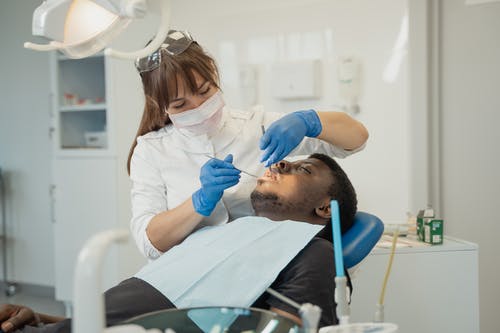Dental decay can be a prevalent health issue. However, many diseases and conditions are preventable and treatable with small lifestyle changes or the usage of various drugs suggested by medical experts or dentists.
Regularly maintaining a good oral hygiene practices is essential for protecting your teeth and gums. Gum disease and tooth decay are conditions that can be avoided by regular dental care. In the meantime, neglecting your oral health can lead to discomfort, diminished self-esteem, and even tooth loss. Malnutrition, language impairments, and other issues could result from these problems. Bad oral health can affect various body systems, including the heart.
Addressing Dental Health Issues
Modern-day diets that are high in calories are all prone to dental problems. Daily flossing, brushing twice often, and having regular dental examinations can reduce the risk of dental problems. To help keep your teeth healthy and vital for the rest of your life, we’ve made a list of the most frequent dental issues and the methods you can follow to prevent them.
1. Tooth Decay
You are wrong if you believe that all chocolates and sweet foods are the cause. A dry mouth increases the chance of developing dental cavities. Dental decay is quickly created when enamel slowly wears away with age. Soft drinks can be a significant cause of tooth decay like soft drinks.
Good dental hygiene requires regular flossing and twice daily brushing. Avoiding foods high in sugar and complex substances will help keep your teeth in good shape. See the dentist regularly to ensure preventative care. The early detection of cavities for treatment is essential.
2. Gum Disease
Periodontal disease is the main reason adults to losing their teeth. Significant risk elements for the development of gum disease include dry mouth, diabetes, tobacco use, and chronic dry mouth. Gum ailments cause bad breath, bleeding gums, the mouth becoming sensitive, and swelling of the mouth.
Consistently brushing and flossing daily can help prevent gum disease. Gum diseases are preventable and treated with a healthy diet of foods that are rich in vitamin C. If you notice any signs of pain or gum weakness, immediately visit facilities like Raleigh Dental Loft.
3. Tooth Sensitivity
Sensitivity occurs when the dentin within the tooth’s central area becomes exposed. Erosion of the teeth almost always results in increased sensitivities. Due to the position of the nerve to the dentin, extreme temperatures can cause discomfort. The most common cause of pain is the canines and incisors, thanks to the strictness of brushing or soft drinks and hard foods.
A routine of twice daily brushing and flossing will help significantly. Make use of fluoride toothpaste designed explicitly for teeth with acute conditions and a soft brush with soft bristles. You can learn more by reading blog posts and articles online about oral health and other dental matters.
4. Dental Erosion
The deterioration of teeth or enamel may cause discoloration. Drinks with sugar and sweets can contribute to the breakdown of teeth. Too vigorously or incorrectly could cause damage to tooth enamel. Like decay, the loss of the tooth enamel is irreparable. So, the only solution is prevention.
Drinks containing fruit diluted with water are a better option than regular dental treatment. The bristles that you use for your brush should be gentle and pliable. Dental exams can reveal tooth deterioration early. The only way to stop tooth loss is to avoid it initially. For emergencies, you can type in “emergency dentist in Raleigh, NC” in your search bar.
5. Bad breath
Medically referred to as Halitosis, poor breath can result from various reasons. Various issues that affect the mouth can lead to bad breath, including cancer, gum disease, dry mouth, and cavities. Also, it is possible not to wash the tongue to remove germs.
Due to the increasing demand for a way to reduce bad breath, chew gums hit the market. They contain extracts of peppermint that are natural and odor-neutralizers. They offer immediate relief, but only for a short time. Utilize mouthwash for a quick stop to your regular flossing and brushing routine. Ask your dentist if you have chronic bad breath.

